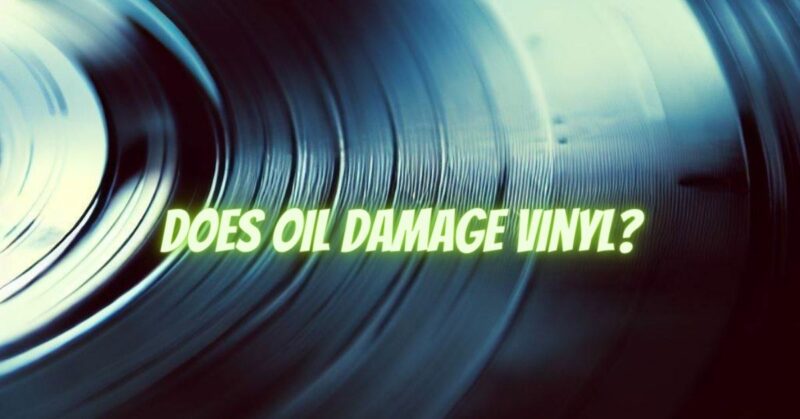Vinyl records are delicate treasures that require careful handling and maintenance to ensure optimal playback quality and longevity. In this article, we explore the impact of oil on vinyl records and discuss whether it can cause damage to these beloved musical artifacts.
- Oil and Vinyl Surface:
Oil, such as fingerprints or grease from hands, can transfer onto the surface of a vinyl record. While this may not immediately cause irreversible damage, it can lead to several undesirable effects. The oil can attract dust and debris, resulting in an accumulation of particles on the record’s surface. Over time, these particles can cause increased surface noise and affect the sound quality during playback.
- Increased Surface Noise and Distortion:
When oil is present on a vinyl record’s surface, the stylus encounters additional friction as it tracks the grooves. This increased friction can generate surface noise and cause distortion in the playback, resulting in a less enjoyable listening experience. Additionally, oil residue can interfere with the stylus’s ability to accurately track the grooves, leading to tracking errors and further degradation of sound quality.
- Difficulty in Cleaning:
The presence of oil on a vinyl record can make it more challenging to clean effectively. Traditional cleaning methods, such as using a record brush or a record cleaning solution, may not be sufficient to remove oil residue. If left unaddressed, the oil can become more ingrained in the grooves, making it even harder to remove and potentially causing long-term damage to the record.
- Preventive Measures:
To minimize the risk of oil damage to vinyl records, it is crucial to handle them with clean, dry hands. Avoid touching the playing surface whenever possible, and handle records by their edges or through the center label. If fingerprints or oil marks are accidentally left on the record, it is recommended to clean them promptly using a gentle record cleaning solution and a microfiber cloth designed for vinyl record cleaning.
- Proper Storage:
Proper storage is essential to protect vinyl records from oil and other potential hazards. Records should be stored upright in sturdy, acid-free sleeves or poly-lined inner sleeves to prevent contact with oily substances. Additionally, keeping records in a clean and dust-free environment helps to minimize the accumulation of particles on the surface, reducing the risk of oil-related damage.
Conclusion:
While oil on a vinyl record’s surface may not immediately cause irreversible damage, it can lead to increased surface noise, distortion, and potential long-term degradation if left unaddressed. Proper handling, cleaning, and storage practices are essential to protect vinyl records from oil-related issues. By following these guidelines, vinyl enthusiasts can ensure the longevity and pristine condition of their beloved records, preserving the quality of the music for years to come.


